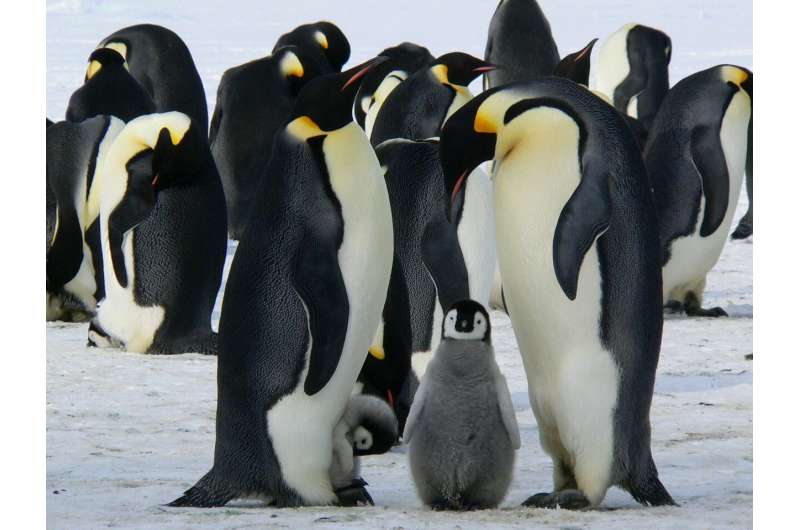September 28, 2023 report
This article has been reviewed according to Science X's editorial process and policies. Editors have highlighted the following attributes while ensuring the content's credibility:
fact-checked
peer-reviewed publication
trusted source
proofread
Short term outlook for emperor penguins may not be as dire as predicted

A team of environmental scientists from France, Tasmania, Canada, the U.S. and Australia has found evidence suggesting that emperor penguins may be more adaptable to a changing climate than previously thought. In their study, reported in the journal Science Advances, the group analyzed satellite imagery revealing that emperor penguins are capable of living in a variety of habitats.
Prior research has shown that under climate change, sea ice levels are shrinking. Prior research has also found that emperor penguins may be at immediate risk due to their breeding habits. Emperor penguins lay their eggs on ice shelves where they are safe from most predators. But as ice shelf levels decline, the thinking is that the penguins will run out of safe places to brood. The IUCN has says data indicates that emperor penguin populations could drop by 80% before the end of this century.
In this new effort, the research team took another look at the habitats in which emperor penguins live by analyzing high-resolution satellite images of Antarctica and surrounding areas. They found emperor penguins brooding in a range of habitats, not just on sea ice. The team also found evidence of geographic partitioning of penguin colonies regarding habitat characteristics—a sign of adaptability. This finding suggests that the birds could adapt even if sea ice disappears quickly, as might be the case. It was not clear from the images if the observed behavior was new, a response to a changing environment, or if the penguins have been breeding in other places all along.
The research team suggests that emperor penguins are not nearly as endangered as some have suggested, at least in the near term. It is still not clear, however, if other factors might play a role in their survival. Warming waters and shrinking pools of prey, for example, could make life difficult, as could exposure to increasing levels of human-made pollution, such as microplastics in the water in which they swim and feed.
More information: Sara Labrousse et al, Where to live? Landfast sea ice shapes emperor penguin habitat around Antarctica, Science Advances (2023). DOI: 10.1126/sciadv.adg8340
Journal information: Science Advances
© 2023 Science X Network




















